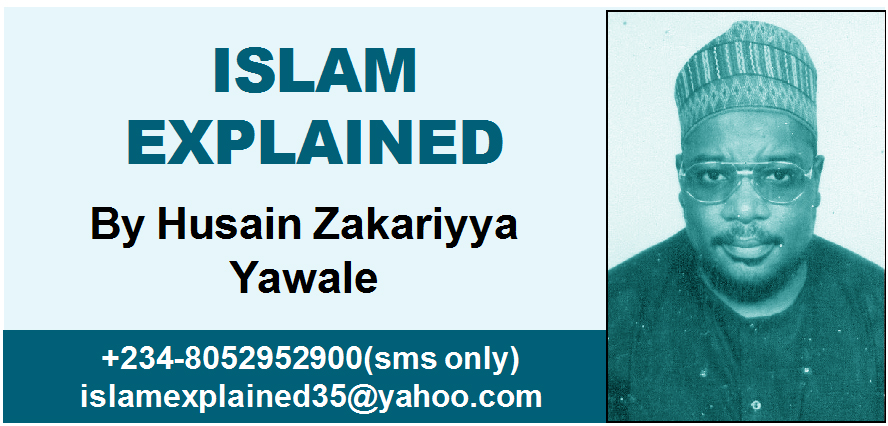The Executive Secretary of the Tertiary Education Trust Fund (TETFUND) Prof. Mahmood Yakubu, in this interview during a Leadership Forum in Abuja, said 5,277 lecturers have been sponsored for post graduate training, while decrying the drab situation of convocation ceremonies in Nigerian universities and tertiary institutions. He also spoke on other issues. Jamila Nuhu Musa, was there.
As a university lecturer and now executive secretary of Tertiary Education Trust Fund (TETFUND) how has the transformation been?
I have spent my entire life teaching, am on leave of absence from a university in Kaduna so I am on loan at the end of my term, I am going back to the best job in the world, I have not done any job for the last 32 years but teach. I started from the primary school in Bauchi after teachers' college. I am the first person from the university system to be privileged to serve as Executive Secretary, TETFUND.
Over the years we have decried poor funding of education, what impact has the Tertiary Education Trust Fund (TETFUND), made on the nation's education system?
Let me first say this, there is always the problem of perception versus reality in TETFUND, we are assumed to be an agency that has come to solve all the problems in the education sector. By definition, and by law, we are an intervention agency as we merely assist and supplement the main budget by federal and state governments for their institutions because we merely fund public institutions. Secondly, we are only given some moving targets.
How many institutions does the fund supplement or intervene in?
The funds available are insufficient but the numbers of institutions we are dealing with are growing. When the intervention started in 1999 we had only 37 universities but today we are funding 73, with the recent addition of Bauchi state university, with the proposal to establish 3 in states that have no federal universities, Borno, Jigawa, Zamafara, along with the establishment of Akwa Ibom state university and some are establishing more than one state university like Rivers state, with the university of education Rumuolumeni, and the recent North West university in Kano. But the resources are not increasing in tandem. We had 43 polytechnics in 1999, today we have 60. We had 60 colleges of education, now we have 63 and Gombe and Bayelsa are about to establish their state colleges of education.
What then is the role of states in the establishment of the institutions?
Some of the states absolutely relay on TETFUND for the funding of capital projects, so some states have absolutely adjudicated their responsibilities to a funding agency. One of the state colleges of education in the north central actually sent their letter to say that in the last five years they have not been allocated one kobo in capital, by the state government. So virtually all the capital projects you see in many of the state institutions, certainly not all, are actually ETF funded. There is no institution in this country, public tertiary institution where we have no ETF project.
But if the MDG is funding basic education why can't ETF fund the whole level of public education?
If the MDG is funding basic education, ETF can't fund all the levels of public education in this country and have impact. Resources are inadequate for us to achieve what we are supposed to achieve. I have told the minister, we went to the president, federal executive council, minister of justice and the NASS on the 3rd of June last year the President assented to the amendment of the ETF Act, to become Tertiary Education Trust Fund, (TETFUND) in other words what we have done is to restore the original conception of the ETF back to what was negotiated between ASUU and the federal government way back in 1992 since we now have UBEC, for basic education which did not exist at the time ETF was established, and then we have the MDGs. So we now have 3 agencies doing the same thing.
As a university lecturer what would you say are the problems of universities?
We know what the problems are in the universities, and I always take a very practical view of the situation. Walk into any university in this country and you will be confronted with the problems, libraries are empty, laboratories are empty, no water, no light, security is a problem. Then there is also problem of governance, problem of ethics, municipal services, learning services so what you have is the problem of intellectual achievements. It is sad that after many years of independence, this country can showcase only one Nobel Laureate. And only God knows when last a Nigerian from the Nigerian university system wrote a book that is highly rated globally, intellectual achievement is low. I know that we complain in the corridors of the university that things are very bad, and therefore an opportunity to serve in TETFUND, is an opportunity for me to try and make some difference if not all the difference. And I have always said that I have a personal agenda in TETFUND to make the university system better because that's where am going back to.
What were the constraints in restoring universities?
After looking at the fund, I discovered that we will never achieve transformative intervention the way TETFUND was constituted, you can't have a funding agency that funds every level of public education in this country, it is simply not possible. In 1992 when ASUU negotiated with the federal government it was for a higher education trust fund not an Education Trust Fund. It was IBB in his own wisdom in 1993 that said since it was the only funding agency it should fund every level of public education. So we are funding basic, secondary and tertiary, made of universities, polytechnics, colleges of education and the so called monotechnics, the single discipline tertiary institutions, most of them actually outside the federal ministry of education at the federal level. So I had a meeting with the executive secretary UBEC and the Senior Special Assistant to the president on MDGs to discuss the issues.
How did you disburse funds to meet demands of universities since some of them needed more funds than others?
Over the last 17 years, we have collected 463Bn in education tax. Out of this amount, the sum of 178 Bn was collected between 1994 and 2007; 284.9Bn was collected between 2008 and 2010 under my watch. In order words, 61% was collected was collected under my watch in the last three years.
The increased allocation meant increase in the allocation to the beneficiaries. When I assumed duty in 2007, each university was allocated 58.5m, but the last allocation to each university was 395m per university and we fund on equality of university. University of Ibadan which is the oldest does not receive more than the Akwa Ibom state university which is the youngest that we are funding, it will be argued that Ibadan has more facilities to maintain but Akwa Ibom also needs to grow. We fund federal and state universities equally, federal and state polytechnics as well as federal and state colleges of education equally.
How did you ascertain judicious implementation of projects?
We had to refocus the intervention. When I assumed duty some universities use to fence their campuses and construct befitting gates from ETF intervention funds, but the law says we should focus on things that matter, the core business of institutions or the core mandate. For instance, one of my friends from the university from the south south, confronted me and said NUC was coming to accredit and that we should give them special allocation because what they collected in the previous year they deployed to affairs around the campus and a beautiful gate, but I said "Prof we do not do palliatives", When NUC comes show them your gate and they will accredit you because that is your priority, they will see you for what you are". That year, 23 courses were denied accreditation and I am happy to say two years later, the vice chancellor was able to address all the deficiencies and achieved 100% accreditation. In other words you need to push them to refocus for things to begin to happen. Every year since 2008, I have met with vice chancellors, directors and provosts; we call it the annual strategic planning workshop for us to discuss our experiences in implementing the intervention in the previous years. The EFCC and ICPC also attend our meetings including unions and civil organisatons.
The issue of training of lecturers is one of the agitations of ASUU, how has the fund assisted in solving this problem?
During one of our meetings with the VCs, I asked why our convocation ceremonies often looked gloomy, because virtually everyone wears the Academic gowns of the same institution. I asked what happened to the international quality and character of staff. Why were they not sending their lecturers abroad because one of the attractions for me to teach at the university of Jos, was the prospect of going overseas for post graduate studies and then in those days you organized convocation ceremony because the lecturers had gone to various universities around the world and it was a colourful ceremony indeed, but now it is an old woman look. They said the problem was funding so we assisted with funds to train lecturers in the universities.
How much was committed to the training?
We made available that year, 50m to each university for academic staff training and development for young lecturers to go for post graduate studies, outside the country for science and technology because it is expensive, within the country for universities other than their own because there is too much of in- breeding. People do their first degree, second degree, doctorate and professorship in the same university. We increased the amount to 60m in 2009 and last year we increased it to 80m. In all, each university, federal and states funded on equality over the last 3 to 4years have received 240m for staff training alone, some that have gone for masters have come back and the scorecard is encouraging, we have so far sponsored 5, 277 lecturers for post graduate studies over the last three years. Out of this number, 1,204 have about now started or they have completed their studies and returned. From the average we have sponsored 1,759 lecturers from our public tertiary institutions for post graduate studies. This is the most aggressive training of lecturers in tertiary institutions in the history of higher education ever in Nigeria.











